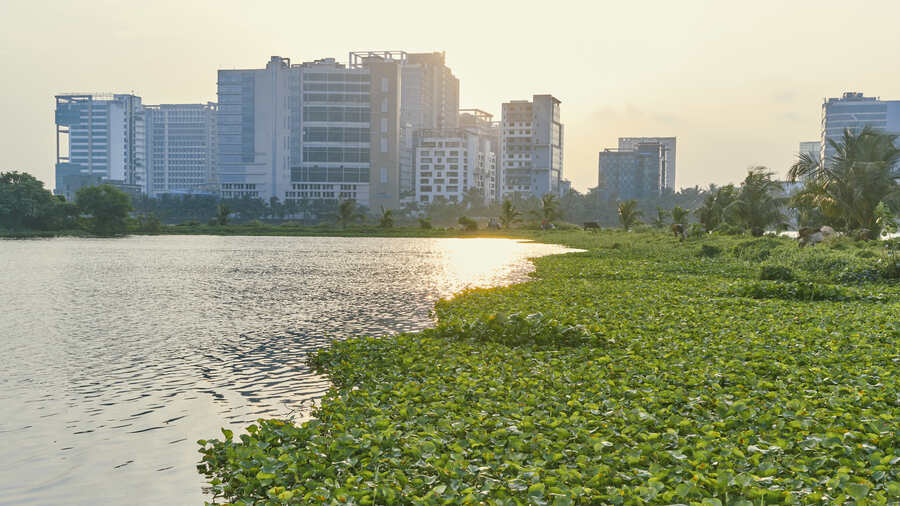Kolkata is going to be the first Indian city to join a global list of cities pledging to adopt a pathway for a future free of fossil fuel, a movement that was initiated in 2020 and has gained momentum since the Glasgow climate summit last year.
On Wednesday, Kolkata mayor Firhad Hakim is set to make the formal pledge in the Kolkata Municipal Corporation headquarters in the presence of senior officials of Climate Action Network (CAN), which is spearheading the movement globally.
“I congratulate the city of Kolkata as the first and largest city in not only India but also in south Asia to pledge its support to the global call for adopting the pathway of a fossil fuel-free world and expressing its intent to inculcate climate resilience within the Kolkata Municipal Corporation. It’s clear that unless carbon emission is cut, cities like Kolkata will continue to suffer,” said Sanjay Vashist, the South Asian director of the network.
So far, 64 cities have joined the global initiative. They include London, Paris, Amsterdam, Vancouver, Toronto and Sidney.
Speaking to The Telegraph from Delhi, Vashist said: “We will be happy to partner Kolkata in its initiative to achieve climate resilience and highlight the agenda globally, including in the ensuing CoP (conference of parties) 27 to be held in Egypt from November.”
The latest UN reports have identified Kolkata as one of the cities most vulnerable to climate change.
Hakim is also a minister in the Bengal government, which is often accused of not doing enough to reduce Kolkata’s pollution.
The National Green Tribunal recently fined the state government Rs 3,500 crore for its failure in waste management.
On Tuesday, Hakim said: “Despite various challenges, we have been working on several aspects of climate change and are happy to join this global initiative that is expected to contribute to our climate resilience.”
Kolkata, he said, must prepare to minimise the catastrophic effects of climate change.
“In this direction, with support from the state government, we have been pushing several actions, including an initiative to run all commercial vehicles in the city on non-fossil energy by 2030,” he said.
The focus will be on promoting electric vehicles, Hakim said.
Mayoral council member Debasish Kumar said the KMC had planted nearly 25,000 trees in the past two years and plan to plant another 25,000 by the end of 2022.
“Plans are underway to create small pockets of urban forest within the city to reduce its load of greenhouse gas,” he said.
In September 2020, the global civil society came up with the fossil fuel non-proliferation treaty that emphasises the use of non-fossil fuel.
“It’s time to move away from the fossil fuel-driven development model, which is the main reason for the warming planet, leading to supercharged storms, rising seas and other worsening climate impacts.
Kolkata’s initiative towards promoting solar energy and electric vehicles must be encouraged and supported through the global climate finance mechanisms,” said Harjeet Singh, global engagement director at the Fossil Fuel Treaty initiative.
S.P. Gon Chowdhury, an expert in the use of solar energy, had a word of caution. “It’s an extremely important event but we need to ensure that we practise what we pledge,” he said.
